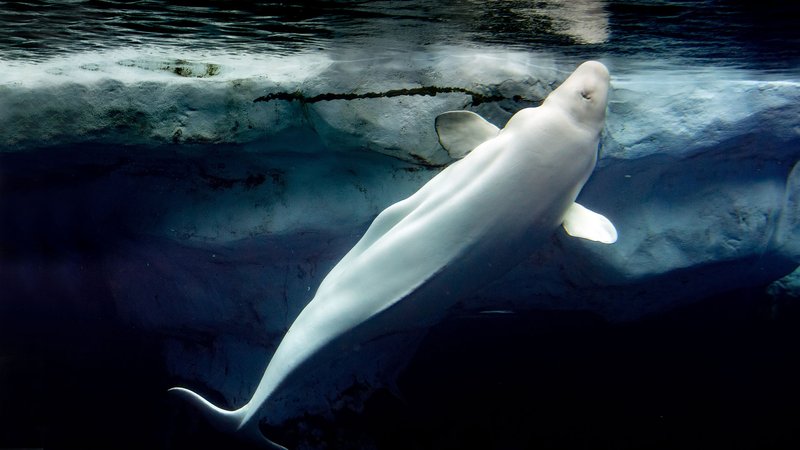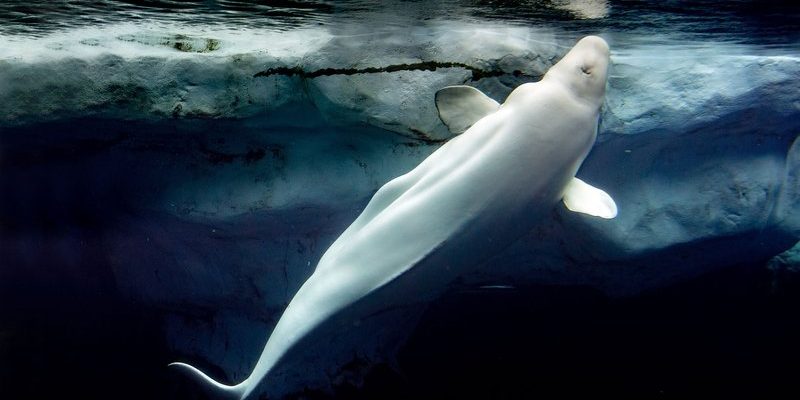
When we think about wildlife, it’s easy to overlook the silent struggles happening beneath the surface. Belugas, primarily found in Arctic and sub-Arctic waters, are extremely vulnerable to various threats—from climate change to human activity. Each of these factors intertwines like the currents of the ocean, creating a complex web that can endanger their survival. Understanding these threats is crucial, not just for the belugas, but for the marine ecosystem as a whole. Here’s the thing: the health of beluga populations can reflect the overall health of our oceans.
Climate Change and Its Impact
The most pressing threat to beluga whales stems from climate change, which is heating up the planet and melting the Arctic ice where they thrive. As ice caps retreat, belugas lose vital habitat for breeding and nursing their young. It’s a bit like losing a cozy home during a winter storm—without those icy structures, belugas face increased challenges in raising their calves.
Moreover, the melting ice alters prey availability. Belugas primarily feast on fish like Arctic cod, but as waters warm, these species may migrate to cooler areas, leading to food scarcity. This shift can affect the beluga’s health and reproductive success, as less food means fewer energetic resources to raise their young. Just think about it: if your favorite restaurant suddenly changed its menu, you wouldn’t be too happy about it either!
Pollution: A Sneaky Threat
Pollution is another significant threat to belugas in the wild. As industrial operations and urban areas expand, contaminants like heavy metals and PCBs (polychlorinated biphenyls) enter the water. These substances don’t just disappear; they bioaccumulate in the bodies of marine animals, including belugas.
When belugas consume prey contaminated by these pollutants, they too become affected. Over time, this toxin buildup can lead to serious health issues, including weakened immune systems and reproductive problems. Honestly, it’s like eating junk food every day and then wondering why you feel sluggish and unwell! We can see that cleaner waters translate to healthier whales, which is why reducing pollution is crucial.
Noise Pollution and Its Effects
If you’ve ever tried to have a conversation in a loud café, you know how challenging noise can be. For belugas, noise pollution poses a significant challenge in their underwater world. Ship traffic, industrial activities, and even underwater construction generate sounds that can interfere with beluga communication and navigation. They rely on echolocation to find food and mates, and these disturbances can disrupt their natural behaviors.
Additionally, stressful environments caused by constant noise can lead to anxiety and changes in social structures within pods. Imagine trying to chat with friends while sirens blare around you—it’s not easy! So, reduced noise levels are essential for supporting healthy communication among these intelligent creatures.
Overfishing and Its Consequences
Overfishing is another culprit that threatens the balance of the ocean ecosystem, impacting not just fish populations but also animals that rely on them, like the beluga. When fishermen catch too many fish, it can lead to a shortage of prey for belugas. If belugas can’t find enough food, their health will decline, and survival rates can drop.
Moreover, overfishing can lead to changes in the ecosystem, which can harm the delicate balance needed for all marine life to thrive. It’s like when you take too many pieces from a Jenga tower—it might stand for a while, but eventually, it’ll come crashing down. Sustainable fishing practices and management policies are vital to ensuring that fish populations can replenish, allowing belugas to find enough food.
Climate-Induced Habitat Loss
Beyond just melting ice, climate change also brings extreme weather conditions that can alter the marine landscape. For belugas, more frequent storms and unpredictable weather patterns can impact their migration routes and feeding grounds, making it harder for them to find safe havens.
Rising ocean temperatures can also lead to increased algal blooms, which reduce water quality and further affect food sources. This scenario places additional stress on belugas, who are already contending with the effects of climate change. You might be wondering how we can help; fostering awareness about climate change and advocating for global initiatives can make a difference.
Human Interference and Wildlife Management
Lastly, human interference through activities like oil drilling and shipping can pose long-term risks to beluga populations. Oil spills can devastate marine ecosystems, while increased shipping traffic can lead to further noise and potential collisions. It’s essential to balance development with conservation efforts to protect these remarkable animals.
Wildlife management plays a key role in ensuring the survival of belugas. Collaborative efforts between governments, NGOs, and local communities can lead to effective policies that prioritize the well-being of these animals. Just as a good team works together to achieve a common goal, protecting belugas requires a united front.
Beluga whales, with their charming personalities and striking appearance, are an important part of the Arctic marine ecosystem. However, their survival is threatened by a combination of climate change, pollution, noise disturbances, overfishing, and habitat loss, all exacerbated by human activity. It’s crucial for us to recognize these threats, not only for the sake of the belugas but for the health of our oceans.
Every small step counts, whether it’s advocating for cleaner waters, supporting responsible fishing practices, or raising awareness about climate issues. By taking action, we can help protect these incredible creatures and ensure that future generations can experience the joy of seeing beluga whales in their natural habitat. Together, we can be the voice they need in a world that sometimes forgets to listen.

